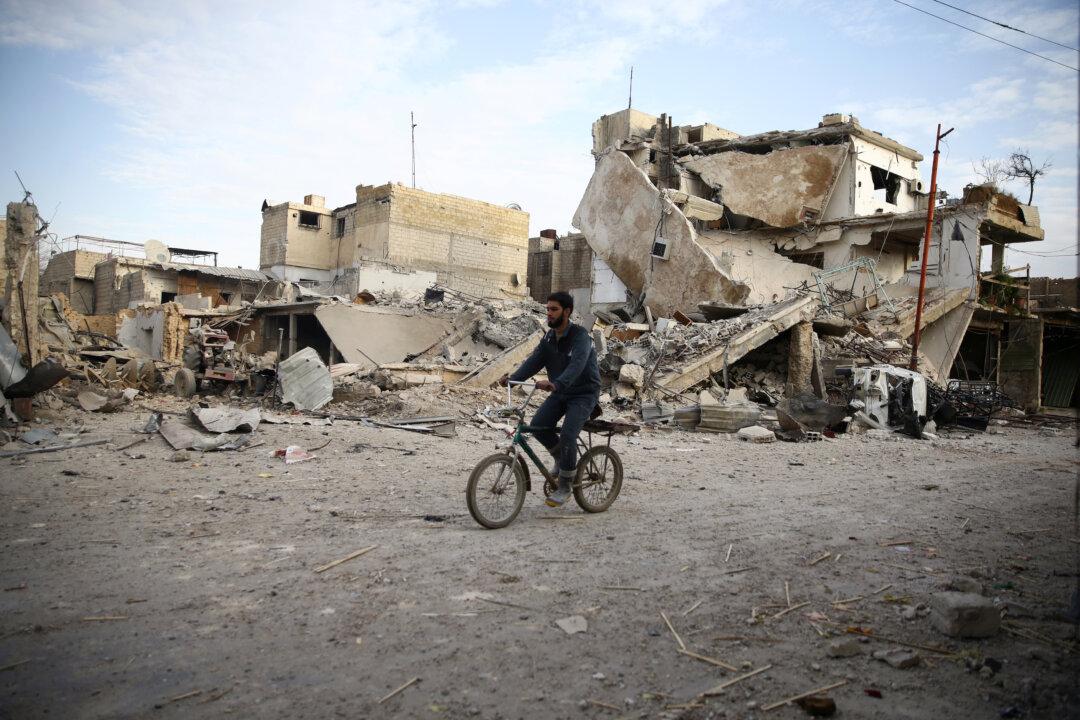BEIRUT—Pro-government forces pounded the rebel-held district of eastern Ghouta outside the Syrian capital Damascus on Tuesday, in a surge of violence that a war monitor said had killed at least 250 people since Sunday night.
The Britain-based Syrian Observatory for Human Rights said it was the highest 48-hour death toll in the Syria conflict since a 2013 chemical attack on eastern Ghouta, the last major rebel bastion located near the capital.





